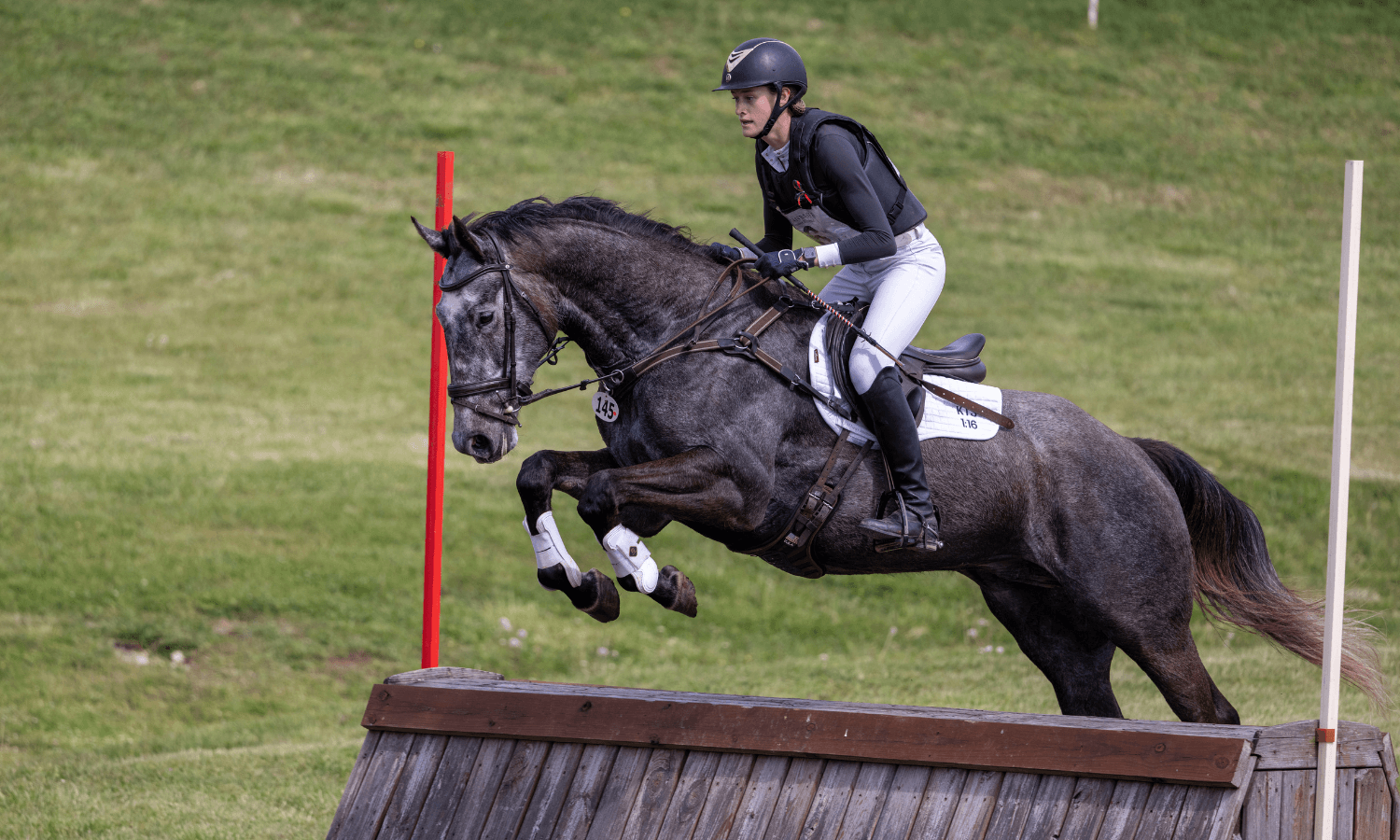USEA Events A-Z: Windermere Run Horse Trials
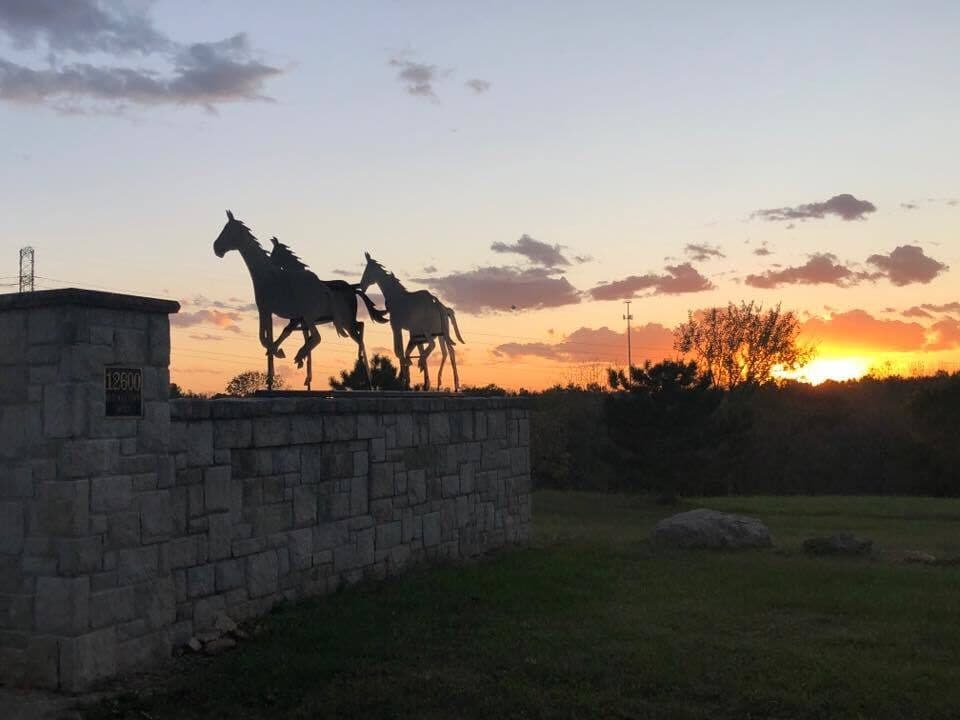
The Windermere Run Horse Trials are held once a year at the end of October at the Longview Horse Park in Kansas City, Missouri (Area IV), offering Starter through Preliminary levels. In 2019, Windermere Run Horse Trials was also host to the Area IV Championships.
While John and Amy Staples’ Windermere Stables is located just north of Wichita, Kansas in Kechi, Kansas, the Windermere Run Horse Trials that they organize actually takes place three hours northwest at the Longview Horse Park in Kansas City, Missouri. The same Longview Horse Park is also home to the Mill Creek Pony Club Horse Trials, held over Mother’s Day weekend in May each year. “They run a spring event and then we run a fall event at the Horse Park,” explained John.
The Windermere Run Horse Trials were first held in late October of 2015, offering Starter through Preliminary levels. “There used to be an event that ran [at the Horse Park] in the fall, but it went away and then we had to wait until the weekend came available,” John said. “We needed another event in our area so we went ahead and started the event.”
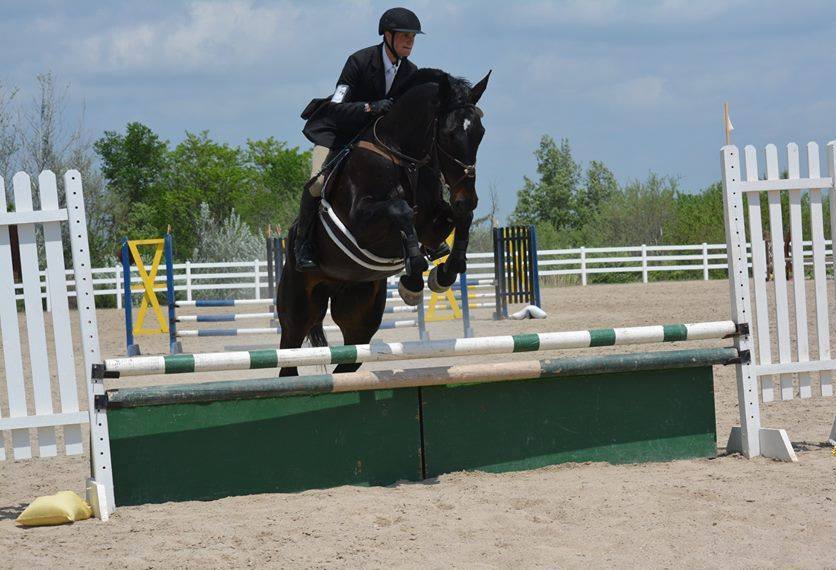
“It takes a lot of help from a lot of friends,” said John. “Everyone that helps us from the event travels – three, four, even five hours. Most of my business is teaching clinics because living in Wichita there’s not a big horse community. We have a variety of people that travel quite a distance to help volunteer at our event and keep it running. We have local volunteers who help out, but the meat of the event is put on by people from all over.”
“My good friend Laura Rietveld really stepped up and helped – her and her husband, Chad,” John said. “They live in Iowa. Susan MacQuiddy, she’s a client of mine from Omaha, Nebraska. Lauren Trepp, her and her mother came in and helped with the office duties and volunteer coordination, which is always an important position. Beth Jauquet and Regan Shelton came down from Colorado and they always help out. And, of course, we have a great secretary, Kathi Roof, who’s from Texas. Amy’s parents come in and help out, and my mother helps – she’s 85 years old. The Mission Valley Pony Club also helps donate a lot of volunteers to help with our jump judging.”
“That’s the most enjoyable thing about the event – we get all our friends together at the same time and they all chip in. They’re all eventers and several of them are trainers and they bring their students to help.”
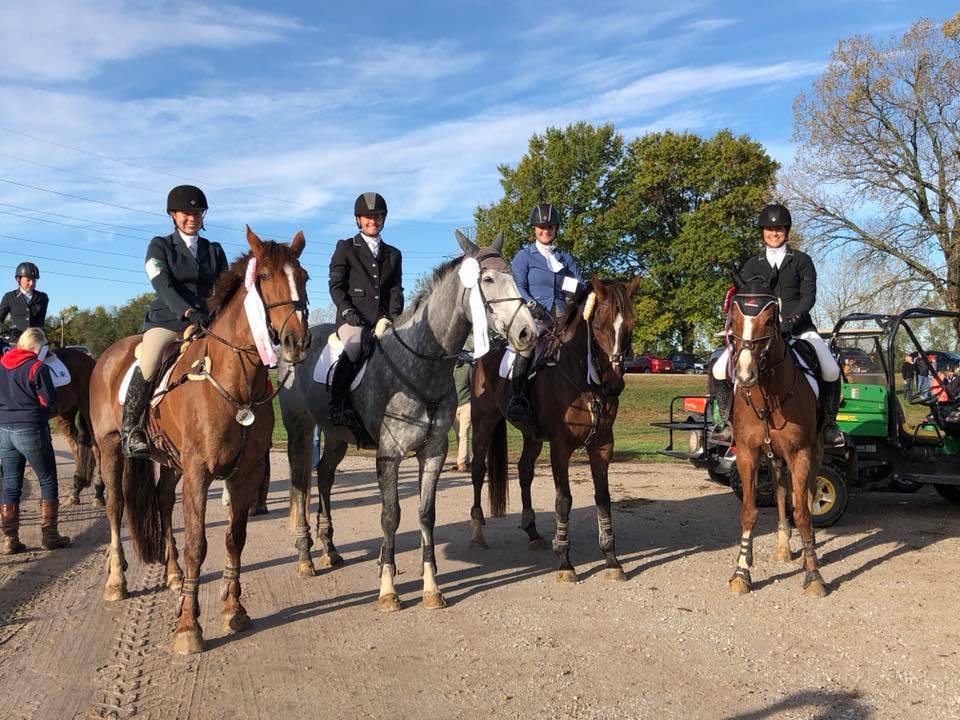
The facilities at Longview Horse Park include large sand warmup and competition arenas, 147 permanent stalls, permanent restroom, and office facilities, in addition to the cross-country course for Starter through Preliminary levels. “The nice thing is, the cross-country course is owned by the Park, so if we build a fence we leave it there and the park owns it,” John shared. “All we have to do is bring in the show jumping fences and dressage courts and all that stuff. We’re able to store all the things that we use at the Park.”
John, who also serves on the Board of the Horse Park, is both the show jumping and cross-country course designer for the Windermere Run Horse Trials. “The cross-country is on a pretty hilly area so it has a lot of terrain,” John observed. “The park is very supportive of helping to promote the event. The Board is basically a group of different organizations that run horse shows at the Park – everything from saddlebreds, a driving group, trail riders, a dressage group, a hunter/jumper group, and the Pony Club is involved.”
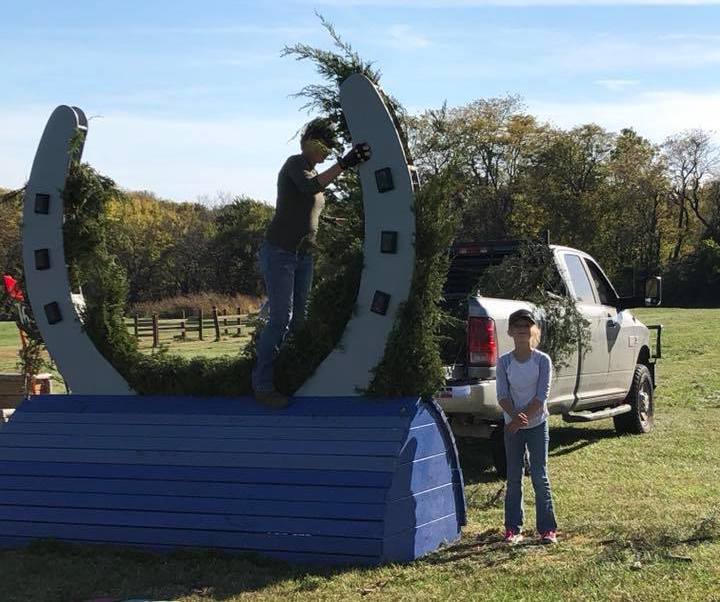
“John rode on the team back in the day, and I think that because he has that passion and love for the sport that that really comes across in the event that he runs,” Amy said. “Our son is an aspiring rider and it’s been nice to see that bond between the two of them grow and watch them work together on building jumps and making improvements for all aspects of the event. I think that’s been a really special thing. It’s something that John is so passionate about and he’s able to put all his love into something he’s passionate about as well, and that’s this event.”
“In our sport, we’re such a small group of people that are close, from the judges that we bring in that have been helpful throughout the year, that I’ve grown up with judging me when I was a kid and who are still out there judging,” John observed. “It’s a great group of people, from judges to competitors to the staff that help run the event.”
“Eventing is great, but it’s about the people – getting all your friends together, whether you’re competing or not,” John continued. “I remember as a young competitor thinking, ‘I can’t wait to go the event to see all my buddies that I haven’t seen for a couple of weeks.’ That’s what eventing is about, to me. It is about competing and riding and all that stuff, but a lot of it is about the friends you make and the friends you get to see. Some of these people I’ve been seeing for 20 years, and it’s fun!”
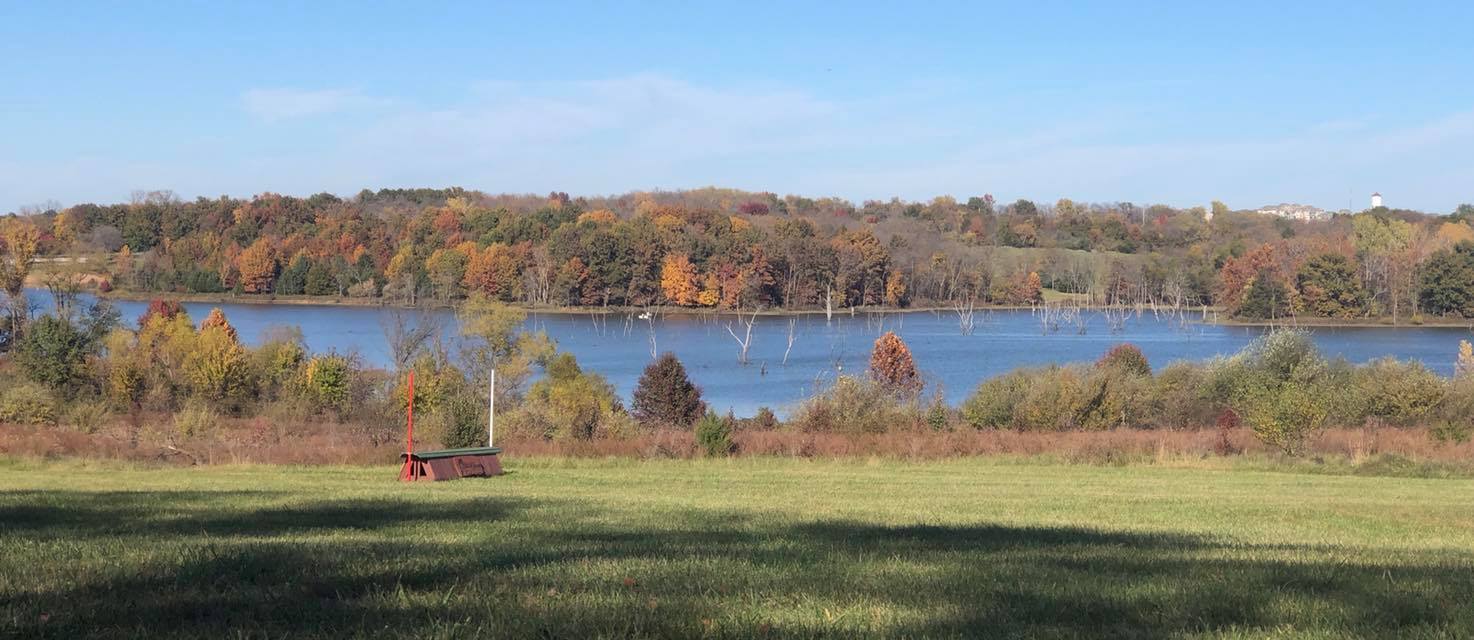
“We try to make it a fun and safe experience for everyone. In the Midwest you don’t have the numbers like you have on the East Coast that facilitate big events. If we can get 200 entries we’re ecstatic. We’re not doing it to have a big show – we’re doing it to keep eventing strong and is at the right level so riders can go on and be ready and prepared for the next event.”
The USEA is profiling the history behind all USEA recognized events in the USEA Events A-Z series.


